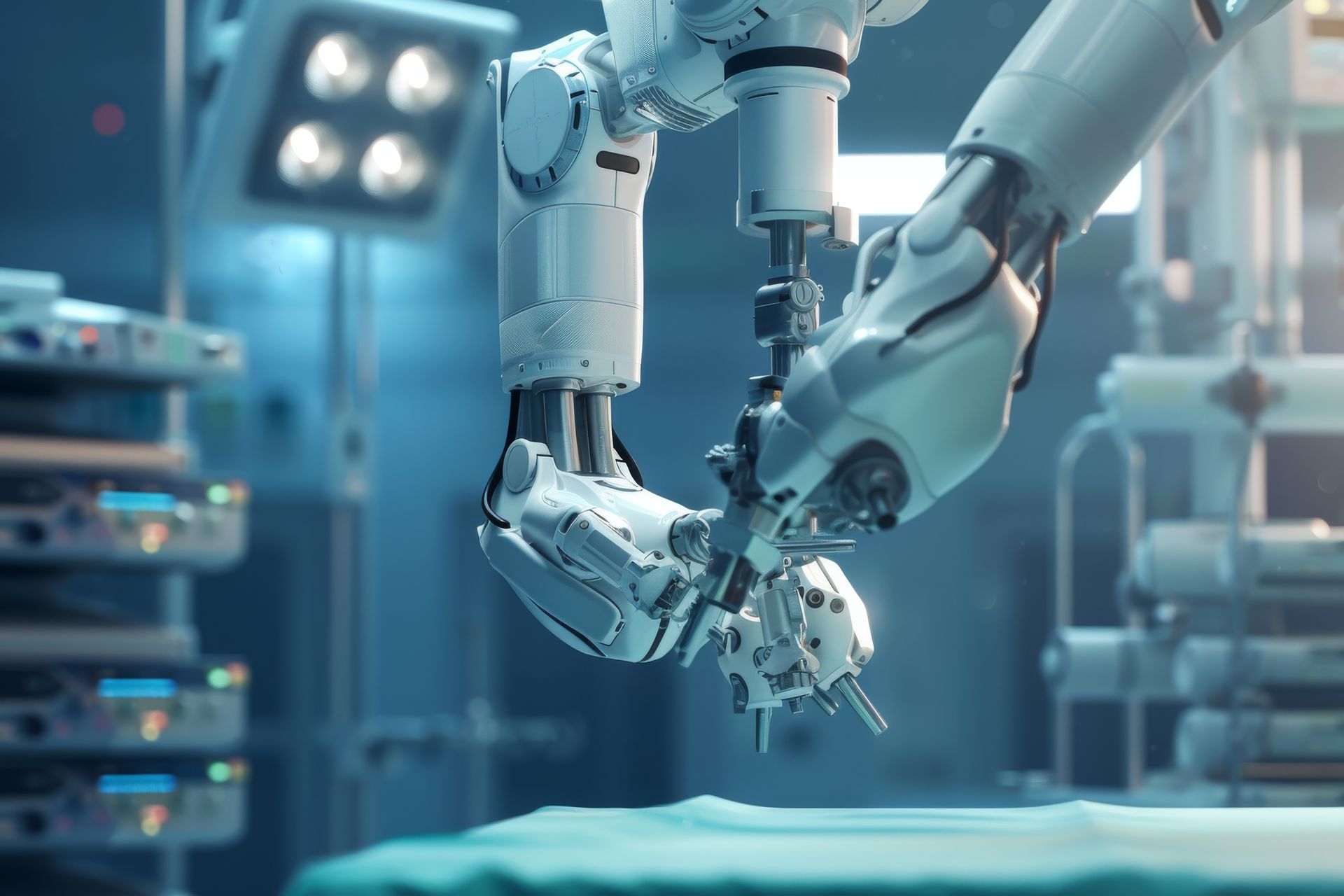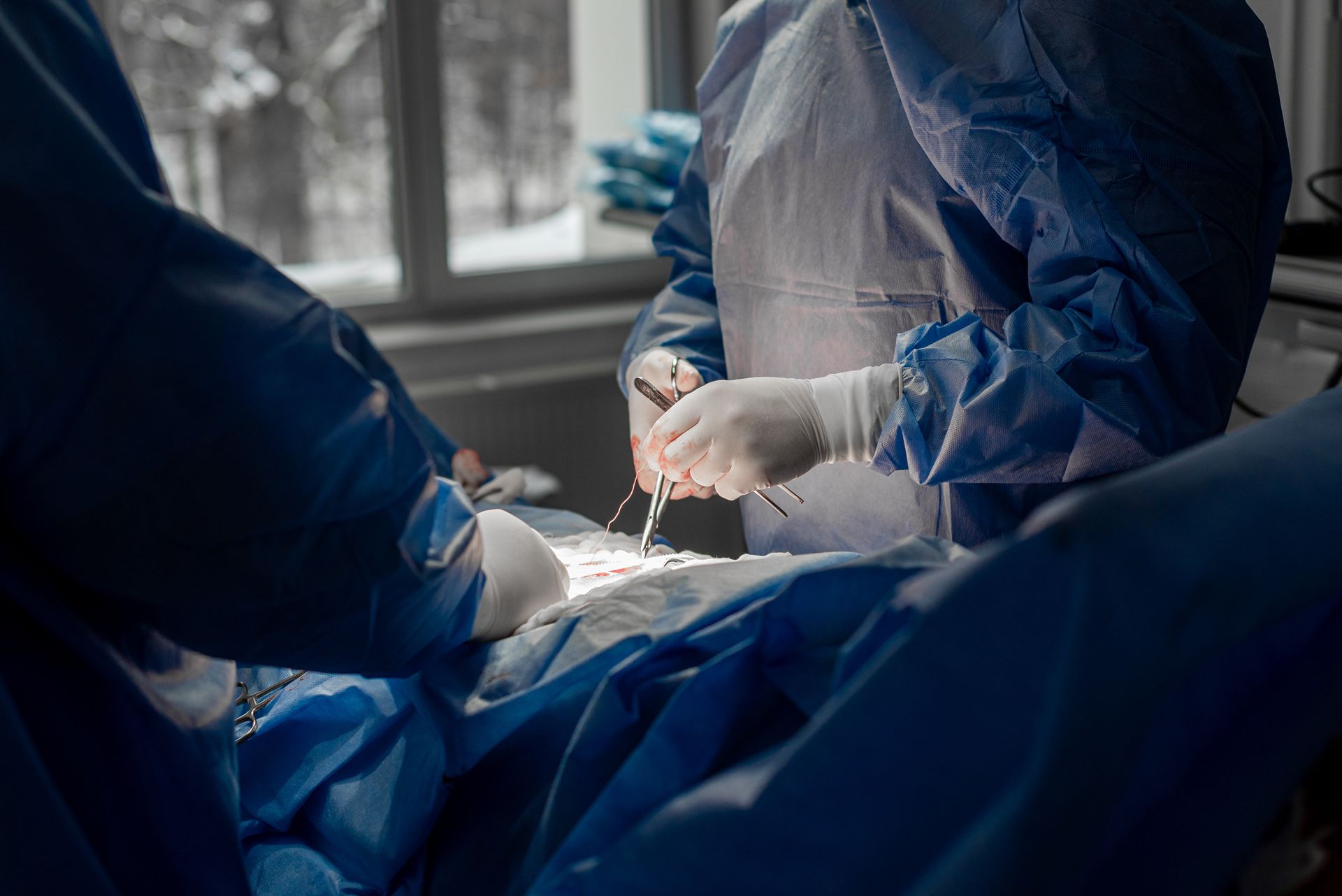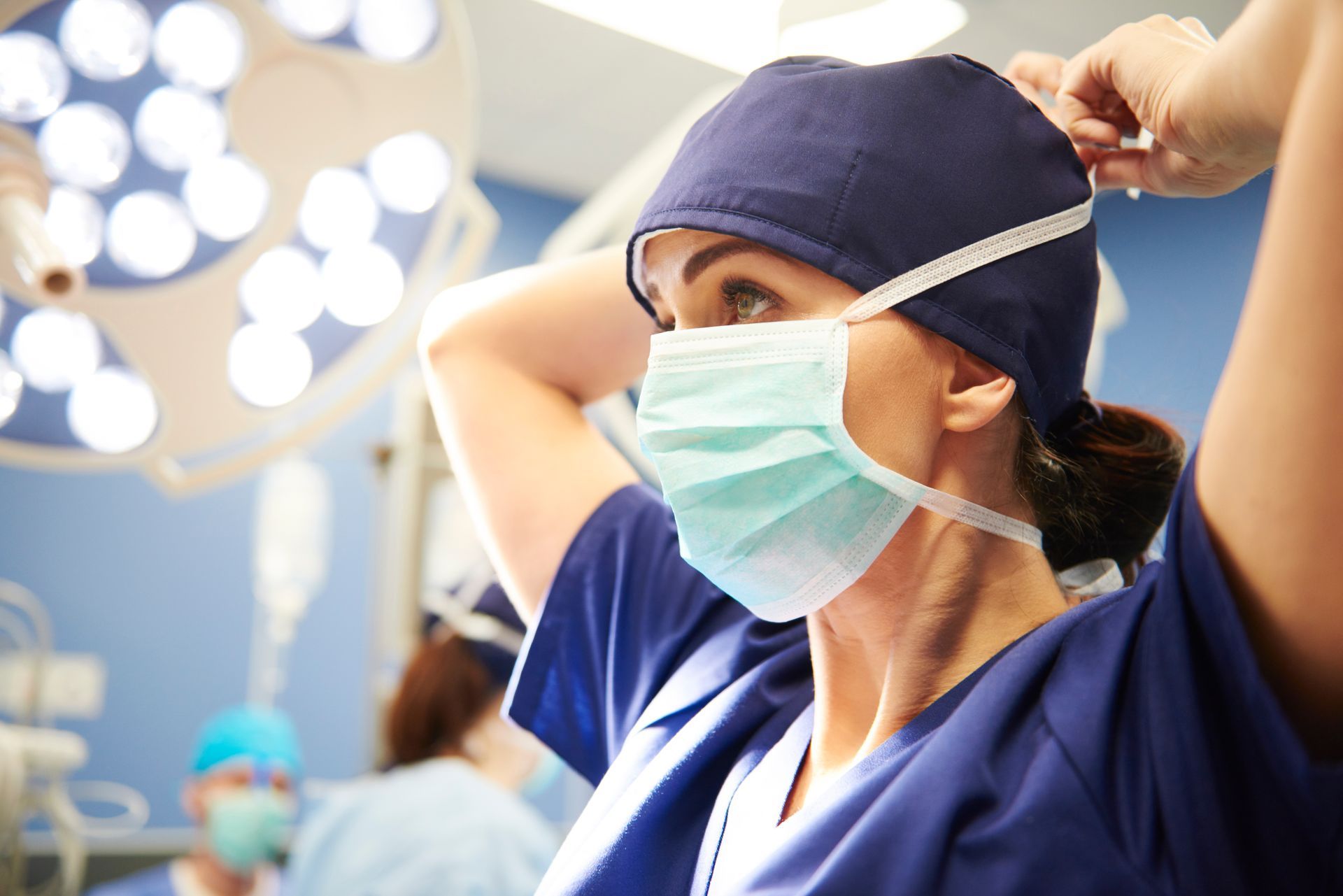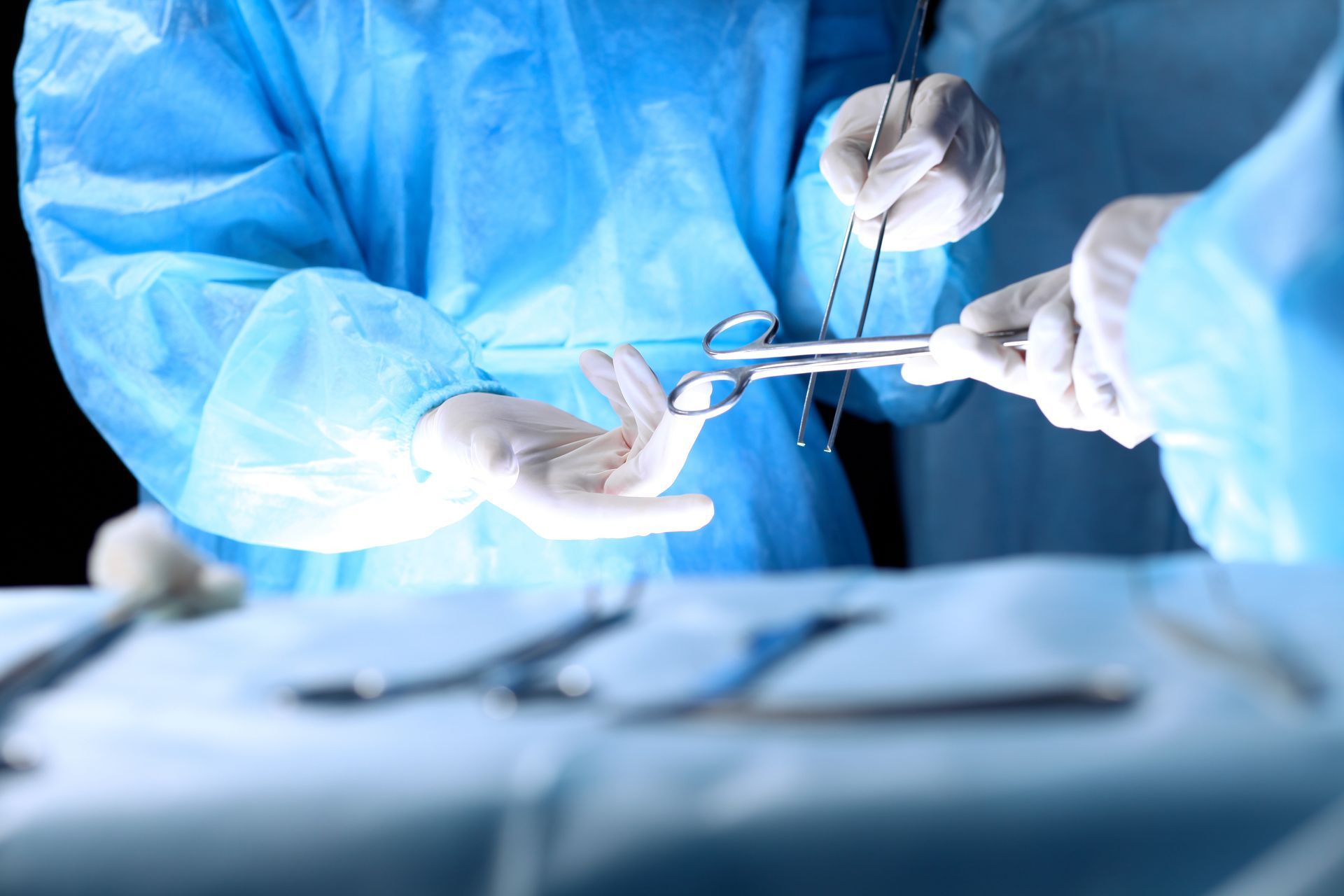Robotic Hernia Surgery: Risks And Complications

In recent years, robotic hernia surgery has become an innovative solution for many patients dealing with hernias. Copper Mountain Surgical, known for its state-of-the-art medical procedures, has embraced this technological advancement to enhance patient care. However, like any surgical intervention, robotic hernia surgery carries certain risks and potential complications. This blog post explores the various aspects of robotic hernia surgery, focusing on its benefits, risks, and complications, especially in the context of Copper Mountain Surgical.
Understanding Robotic Hernia Surgery
A hernia occurs when an internal organ or tissue pushes through a weak spot in the surrounding muscle or connective tissue. This condition can cause discomfort, pain, and in severe cases, may require surgery. Hernias are most commonly found in the abdomen, groin, or upper thigh areas.
Robotic hernia surgery is a minimally invasive procedure used to repair hernias with the assistance of robotic technology. It offers greater precision, flexibility, and control compared to traditional open surgery or standard laparoscopic techniques. At Copper Mountain Surgical, surgeons use the da Vinci Surgical System—a cutting-edge robotic platform that allows for enhanced dexterity and 3D visualization, helping surgeons perform complex hernia repairs with increased accuracy.
How Robotic Hernia Surgery Works
In robotic hernia surgery, the surgeon operates through small incisions, typically around 8-12 millimeters in size. The surgeon sits at a console, where they control robotic arms that manipulate surgical instruments. A high-definition, 3D camera provides the surgeon with a detailed view of the affected area, enhancing precision. This approach minimizes tissue damage, reduces scarring, and promotes faster recovery.
The key advantage of robotic hernia surgery lies in its minimally invasive nature. Patients often experience less post-operative pain, a shorter hospital stay, and quicker recovery times compared to traditional open hernia repairs. However, it’s essential to understand that despite these benefits, robotic hernia surgery is not without risks and potential complications. Read Robotic Hernia Surgery: Recovery And What To Expect to learn more.
Risks And Complications Of Robotic Hernia Surgery
As with any surgery, there are inherent risks associated with robotic hernia surgery. These include general risks related to anesthesia, infection, and bleeding, as well as complications specifically related to the procedure. Let’s delve into some of the most common risks and complications that patients may encounter.
Infection
Infection is a potential risk with any type of surgery, including robotic hernia repair. While minimally invasive techniques generally reduce the likelihood of infection due to smaller incisions, bacteria can still enter the body during surgery. Infections may develop at the incision sites or internally, near the area where the hernia was repaired. Symptoms of infection can include redness, swelling, warmth at the surgical site, fever, and drainage of pus.
At Copper Mountain Surgical, strict protocols are followed to minimize the risk of infection. Surgeons ensure the highest standards of cleanliness in the operating room, and patients are given antibiotics before surgery to reduce the chances of infection. Despite these precautions, infection remains a possibility and can sometimes require additional treatment, such as antibiotics or even further surgery to address the issue.
Bleeding And Hematoma Formation
Bleeding during and after robotic hernia surgery is another potential risk. While surgeons take great care to minimize blood loss, small blood vessels may still be damaged during the procedure. Excessive bleeding can lead to the formation of a hematoma, which is a collection of blood outside of the blood vessels. A hematoma can cause swelling, pain, and bruising around the surgical site.
In most cases, small hematomas resolve on their own with time. However, larger hematomas may require drainage or additional surgery to prevent further complications. At Copper Mountain Surgical, surgeons closely monitor patients for signs of bleeding and take appropriate measures to manage this risk.
Damage To Surrounding Organs
One of the key advantages of robotic hernia surgery is the increased precision it offers, which theoretically reduces the risk of damage to surrounding organs. However, complications can still arise. During the surgery, there is a risk of accidental injury to nearby structures such as the intestines, bladder, or blood vessels, especially if the hernia is large or located near these organs.
In the case of intestinal injury, there may be leakage of bowel contents into the abdominal cavity, which can lead to infection or more severe conditions like sepsis. Injury to blood vessels can result in significant bleeding, requiring immediate intervention. Fortunately, Copper Mountain Surgical’s skilled team is trained to handle such complications swiftly if they arise, though these events are rare.
Recurrence Of Hernia
Despite the advanced technology used in robotic hernia surgery, there is still a risk of hernia recurrence. Hernia recurrence occurs when the repaired tissue weakens again, allowing the hernia to reappear. Recurrence rates for hernias can vary depending on the size and location of the hernia, the patient’s overall health, and the surgical technique used.
While robotic surgery can reduce the risk of recurrence compared to traditional open surgery, it is not entirely foolproof. Factors such as patient lifestyle, weight, and adherence to post-operative instructions can influence the likelihood of recurrence. Surgeons at Copper Mountain Surgical provide detailed post-operative guidelines to help patients minimize this risk.
Nerve Damage
Nerve damage is a potential complication that can occur during robotic hernia surgery, particularly in cases where the hernia is located near nerve-rich areas, such as in the groin (inguinal hernia). Nerve damage may result in pain, numbness, or a tingling sensation around the surgical site. In some cases, these symptoms may be temporary, but in others, they can become long-lasting or even permanent.
Patients at Copper Mountain Surgical are carefully evaluated to ensure that the risks of nerve damage are minimized. Surgeons use precision tools and advanced imaging to avoid unnecessary trauma to surrounding nerves. However, nerve damage remains a possible outcome, particularly in more complex cases.
Anesthesia-Related Risks
Robotic hernia surgery is typically performed under general anesthesia, which carries its own set of risks. While modern anesthesia techniques are generally safe, potential complications can include allergic reactions, breathing difficulties, heart problems, and, in rare cases, stroke or death.
Before undergoing surgery at Copper Mountain Surgical, patients are thoroughly assessed by an anesthesiologist to determine their fitness for anesthesia. The team carefully monitors patients throughout the procedure to ensure their safety. Although serious anesthesia-related complications are rare, they are a recognized risk of any surgical procedure.
Seroma Formation
A seroma is a collection of fluid that can develop at the site of the hernia repair. This occurs when lymphatic fluid accumulates in the space left behind after the hernia sac is removed. Seromas can cause swelling and discomfort, though they are generally not dangerous. In many cases, seromas resolve on their own within a few weeks or months.
In some cases, however, seromas may persist or become large enough to require drainage. At Copper Mountain Surgical, surgeons take steps to minimize the risk of seroma formation by using meticulous surgical techniques and placing drains when necessary.
Chronic Pain
While robotic hernia surgery is known for causing less post-operative pain compared to traditional open surgery, some patients may experience chronic pain after the procedure. This pain can be due to nerve damage, scar tissue formation, or other factors related to the surgical repair.
Chronic pain following hernia surgery is a complex issue and can be difficult to treat. At Copper Mountain Surgical, the medical team works closely with patients to manage any post-operative pain and provides follow-up care to address long-term discomfort. Pain management techniques may include medications, physical therapy, or, in some cases, further surgical interventions.
Managing And Reducing Risks At Copper Mountain Surgical
At Copper Mountain Surgical, patient safety is a top priority. To minimize the risks and complications associated with robotic hernia surgery, the surgical team employs several strategies:
- Pre-operative Assessment: Every patient undergoes a thorough evaluation before surgery to identify any potential risk factors. This includes a review of the patient’s medical history, a physical examination, and any necessary imaging or laboratory tests.
- Advanced Surgical Techniques: Surgeons at Copper Mountain Surgical are trained in the latest robotic techniques, which allows for greater precision and control during the procedure. This reduces the risk of complications such as bleeding, infection, and organ damage.
- Patient Education: Patients are provided with detailed instructions for both pre- and post-operative care. This helps them understand how to prepare for surgery and what steps to take during recovery to minimize the risk of complications.
- Post-operative Monitoring: After surgery, patients are closely monitored for signs of complications. Regular follow-up appointments ensure that any issues are identified and addressed promptly.
Conclusion
Robotic hernia surgery at Copper Mountain Surgical represents a significant advancement in hernia repair techniques, offering patients a minimally invasive option with many potential benefits. However, like any surgical procedure, it is not without risks. Complications such as infection, bleeding, nerve damage, and hernia recurrence, while rare, can occur. The medical team at Copper Mountain Surgical takes every precaution to reduce these risks and ensure the best possible outcomes for patients.
Understanding the potential risks and complications allows patients to make informed decisions about their healthcare. By working with a trusted medical provider like Copper Mountain Surgical, patients can feel confident in their treatment plan and take steps to achieve a smooth recovery.
Contact our team today!




